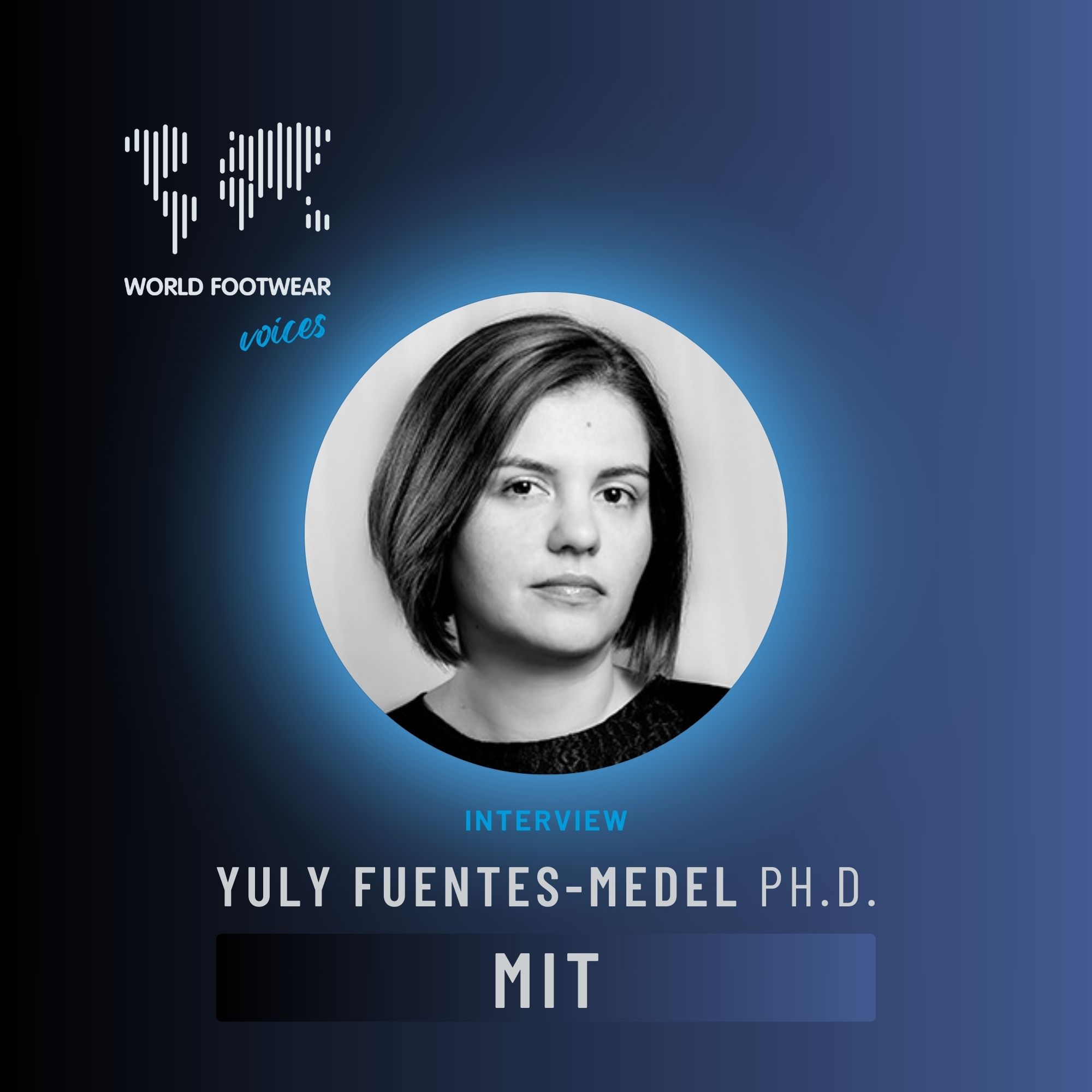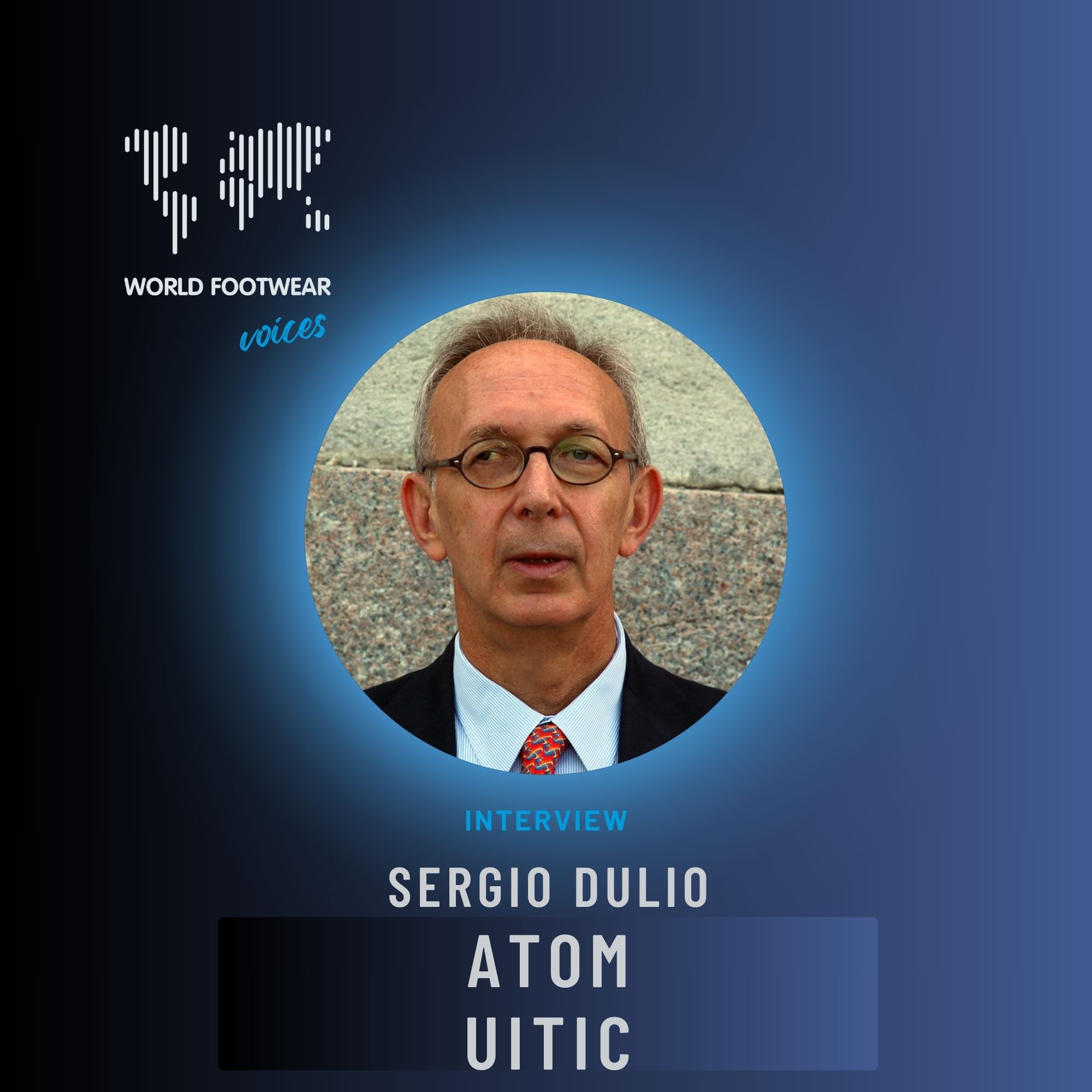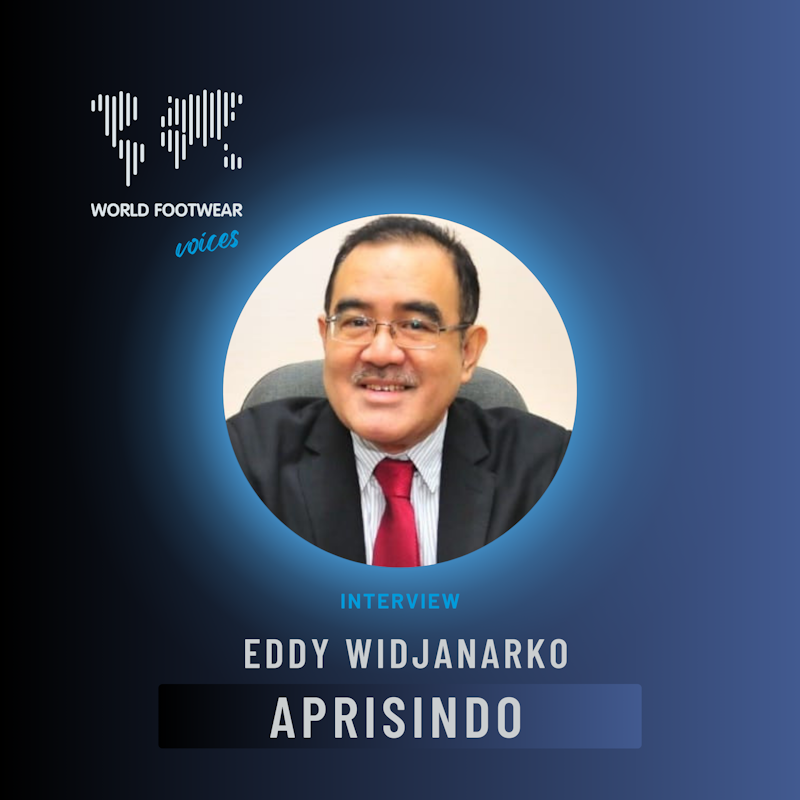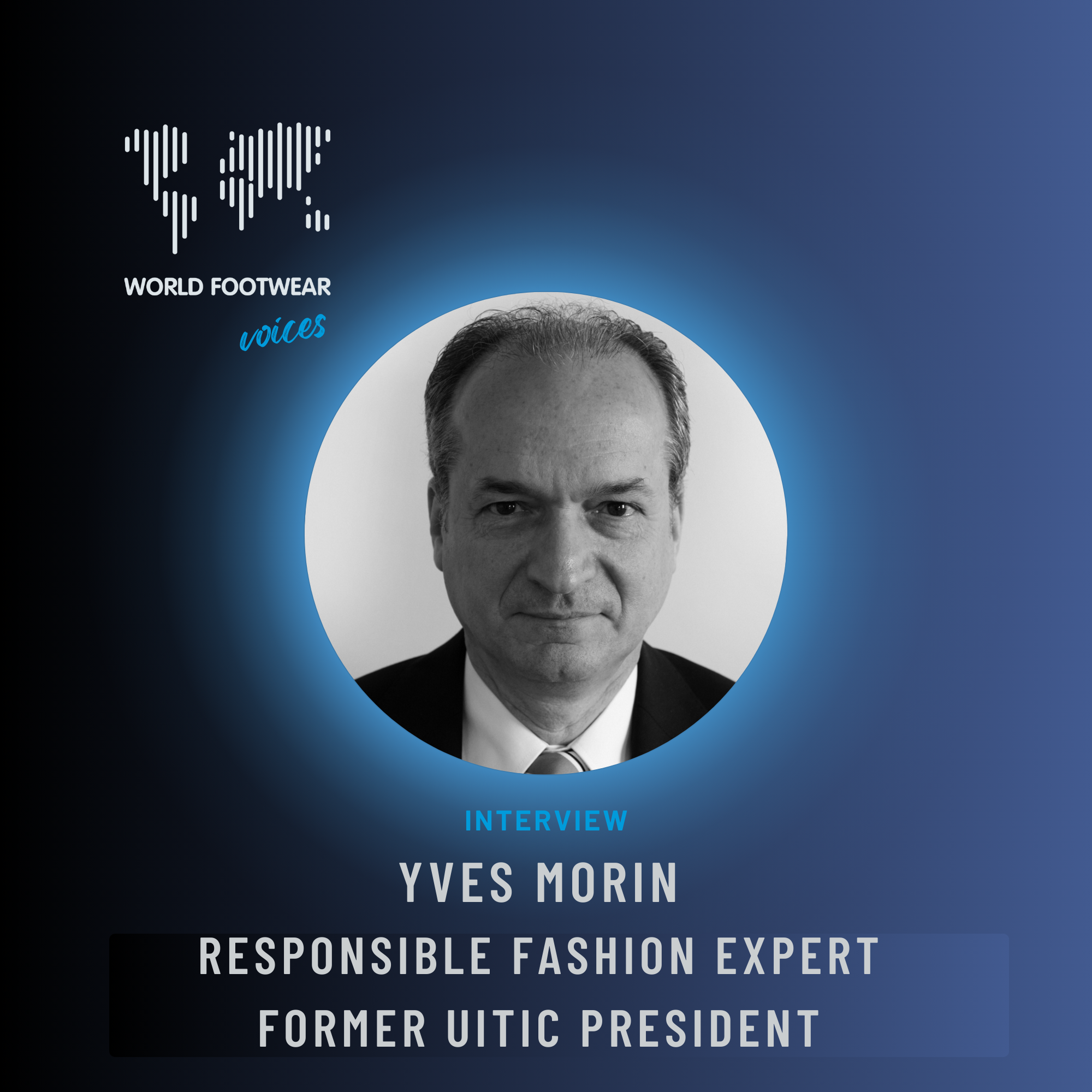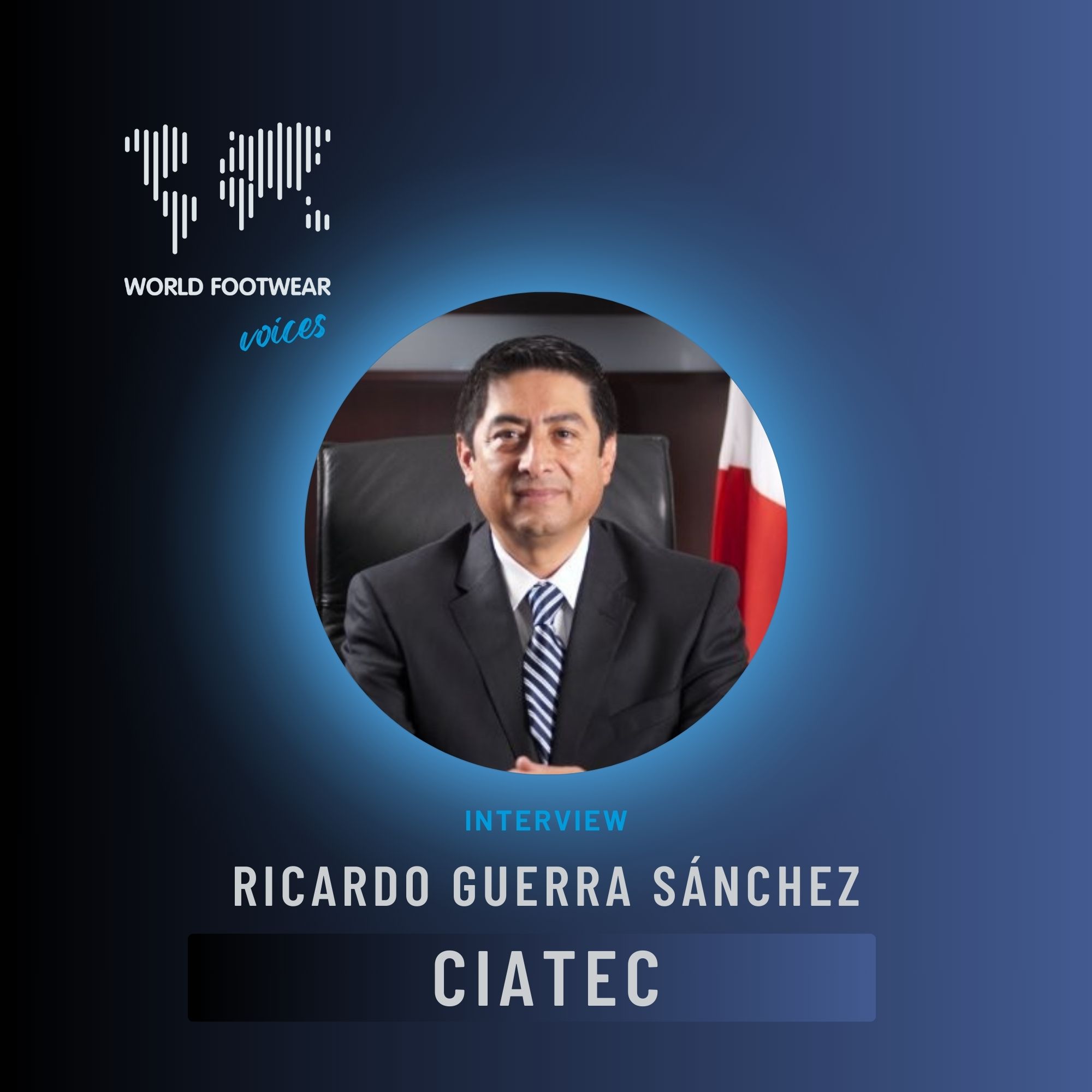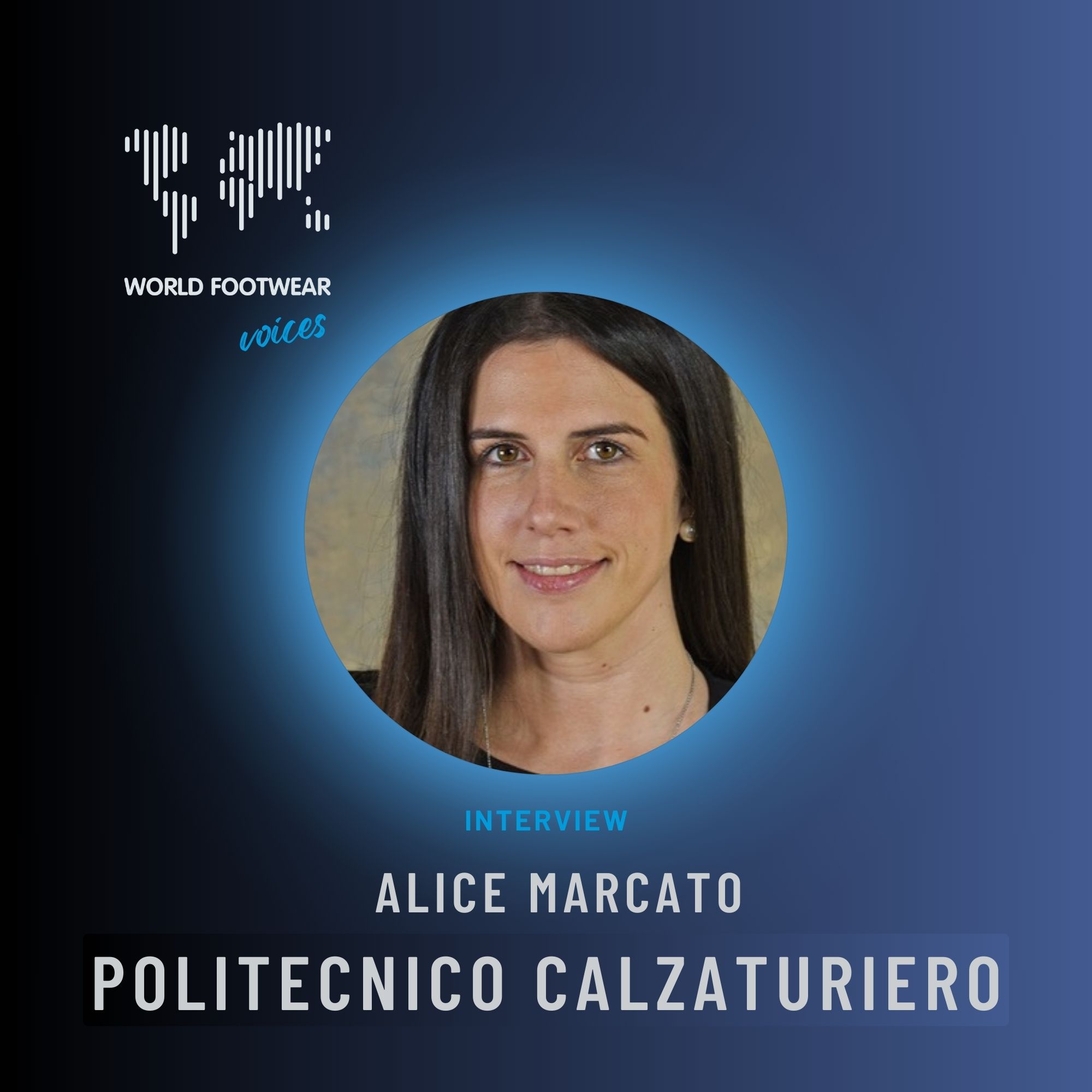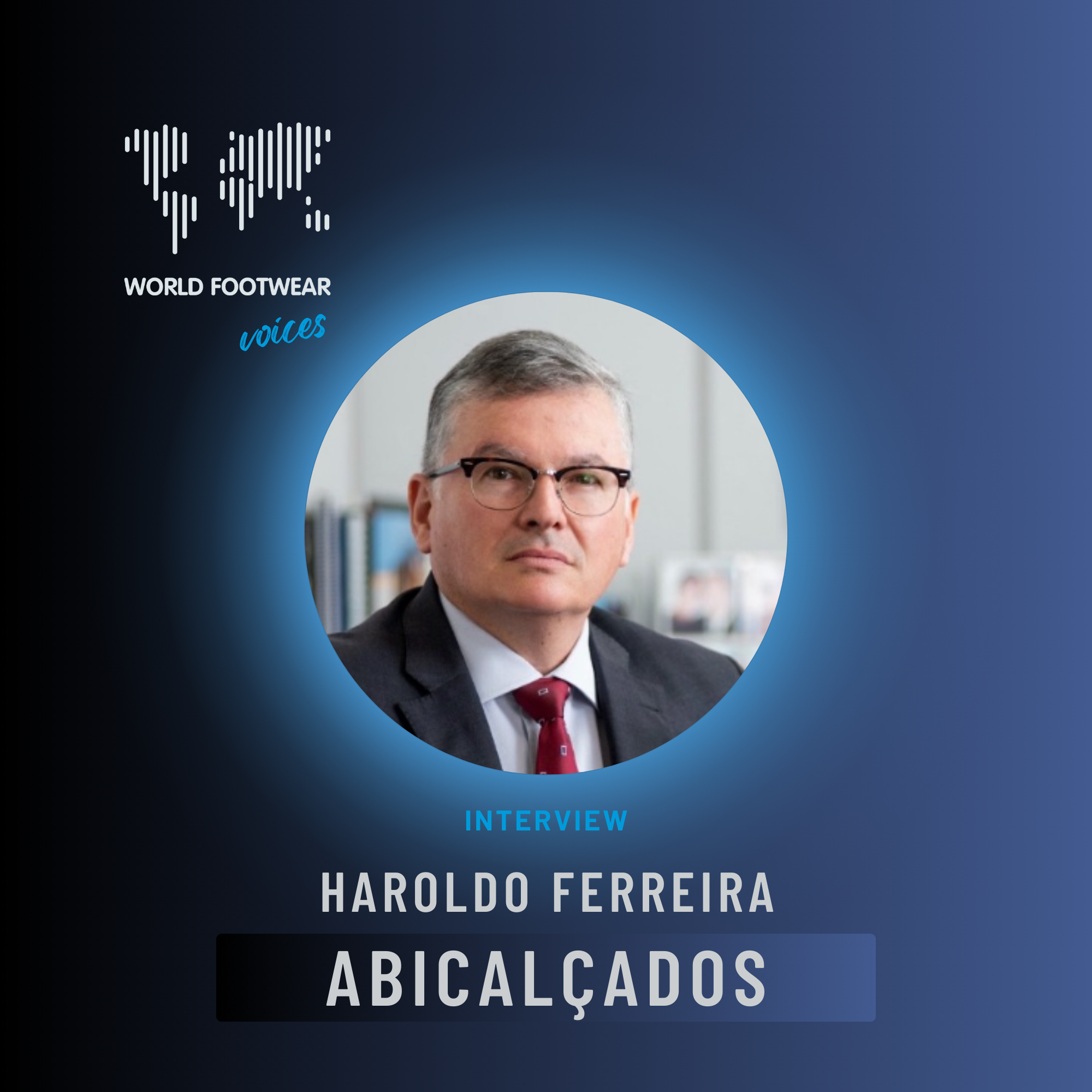World Footwear Voices: interview with Marco Guazzoni from Vibram
Today we bring you a conversation with Marco Guazzoni Sustainability Director at Vibram. Watch the new episode of the World Footwear Voices
World Footwear: We are here in Istanbul for the World Footwear Congress with Marco Guazzoni from Vibram. Hi, Marco. Thank you very much for being with us. Vibram has more than 80 years of experience in the development and manufacturing of rubber soles. In your view, how has the company managed to keep updated and evolve over time?
Marco Guazzoni: The first big part is the owner of the company. The founder was a genius, really inventing something new to serve and, let’s say, give confidence to people to go into the mountain, to overtake limits, and the actual owner, who is the grandson of the founder, is really a visionary. He’s looking for advanced things. Normally, our model of innovation is based on looking for the consumer, normally the most expert consumer. So, for every kind of application, the runner, the firefighter, or whatever, whether they work in safety or sports, we are asking the athletes, the professionals, to give us all the input. We give them shoes and soles to see where the limits are, where we can solve some needs, and then decide the next step of innovation. We normally advance and try to be more innovative. Innovation is key for us. And today, even with sustainability, the point is to innovate in a proper way for processing products that are on the next step of excellence for our products, in our field.
World Footwear: In your view, what makes the perfect sole?
Marco Guazzoni: Let’s say… the perfect sole is very difficult. I don’t think that there is a single perfect sole because you always have to compromise a little bit on the type of performance, depending on the type of application you need. For us, the key is durability, so to make something that lasts not forever, but the most of it, and try to compromise grip traction, depending on the performances that you need to have: if you are running, it’s something very sticky, maybe will last a little bit less; if you go in the mountain, it’s something very strong that makes you safe walking and doing something exceptional, but lasting for long.
World Footwear: Can I ask you what is the Sustainable Way Approach and how is that related to the Sustainable Development Goals? And also, in terms of measures, how can you measure that?
Marco Guazzoni: I’ll try to make the story short, but it’s something very huge for us. We started some years ago, in 2017/2018, to look at the perspective of sustainability. I mean, we come from outdoors, so, for us, I realised after that it was not easy, but at least there were a lot of principles which were already taking care of the environment. But when we measure, we analyse and identify which are the perspectives to be sure that we are doing the right things. Or, if there is an impact in something that we are doing to see a different perspective from the standard profitability and efficiency related to profit.
I have to say sustainability is profit. If the company has to invest in something which is not profitable, maybe they will do it for a while, but they will not continue forever. So, sustainability is a research of eliminating waste, reducing consumption, is a lot of things which are related to sustainability to sustain profit as well. By the way, sometimes you have to make investments to make it right in the long term. You have to always look for the long-term perspective. In terms of our strategy, when we measured everything, we identified circularity: so, our waste is quite important; our consumption of energy is quite important. For instance, water is not entering our products. So, water is not relevant to our business.
When we started, we decided to have some pillars in our strategy which are, let’s say, forever. Then, we established a strategic plan going on deep projects for everything to measure, identify some indicators, and then fix some objectives. So, every quarter, there is a strategic committee which is analysing this data, this measurement, to see if we are moving in the right direction or if we have to put some more effort into that. It’s quite wide and complex. But I think that if you take the strategy, you make the materiality, you identify what is a priority for your company and your type of business, then you can identify what are the major efforts that you have to do today. And maybe tomorrow will be different because you solve something, just to make an example, energy, we changed the supplier of electric energy to fully renewable energy. So, this has been done now, we don’t have that energy anymore, such big in terms of consumption or impact. And then we started with something else. So, you go for priorities and when you arrive at a limit of the technology of today, which is not helping you to improve more, you leave it and go to the next topic or you move to a few topics altogether.
But it’s really challenging, and in my opinion, the very funny or very nice part of my job is the fact that it is very varied. You don’t do every day the same things, you change a lot and you make new things every day.
World Footwear: Do you think the components industry has more room to incorporate innovation and, in that way, work harder towards sustainability? Do you think there is more room there?
Marco Guazzoni: For sure, a product is made from more components, so they play a big role. Today, the huge challenge of products is to have the whole supply chain under control, moving to improve on a sustainability direction. Of course, the sole, for us… We believe that it’s 50% of the structure of the shoes, so, it’s important, even if not everybody looks at the sole as the most important part of the shoes. So, we can play a role, every ingredient can play a role. But I think that we can do a lot. The thing that in my opinion is tricky is the fact that it’s not only the product, let's say the material or something visible, but sometimes it is the process of getting the product right, with a better impact or without compromising the future of the planet, of our survival on the planet.
World Footwear: Do you think sustainability is now a factor that plays a big role when choosing your partners?
Marco Guazzoni: Partnership, in my belief, is really a strong point in general, but for sustainability is even stronger. I have to say that in the past, we intended, since we are a high-performance sole, we intended to be the leader in the market of technicality. I’m not saying that we are choosing completely our customers, but sometimes the differentiation is based on the price that they can pay and something stronger for them to be with us. On the other side, today, with sustainability, we are choosing, and sometimes we are changing because there are brands which are maybe not very high-level products in terms of prices, but they are very taking care of sustainability, very interested in that. And sometimes we are rethinking our product portfolio of partnerships based on sustainability. I believe today it is the key to differentiation, but I also believe that tomorrow the company which won’t be sustainable will disappear. Today, I don’t think that consumers are able to pay something more for sustainability, maybe just a little part of them, but tomorrow will be mandatory to be sustainable or to do something strong in order to improve sustainability. And this is the differentiation. If you don’t take care of that, you will disappear. People will not buy any more from you.
World Footwear: I believe you joined Vibram as Director of Research and Development. In your view, what is the role of innovation and technology in helping us to achieve more sustainable products, more sustainable materials and eventually a more circular economy?
Marco Guazzoni: Innovation is the key, in my opinion, because, today, maybe we can improve something that already exists, but it is a little incremental improvement. If you rethink the product in total, and I think more on eco-design as one of our… Let’s say, one of my beliefs is to push strongly for partnerships because in our eco-design, we can improve some materials, make some more circular projects. We are quite clever in pre-consumer waste; we can improve the post-consumer waste and the circularity in general or go on bio-based material. But if we work with the industry going in rethinking the shoes… Sometimes, I make the joke and the provocation to the market saying: “Today we sell soles, maybe tomorrow we will sell steps or kilometres”. So, rethinking the fact that I use these shoes, I don’t know, three days a week or maybe two days a month, and maybe somebody else can use them for the rest of the time, and we don’t need to produce more to have the usage, the correct use of the products, make things durable.
Another aspect, in my belief, is thinking about emotional durability. We don’t talk about fashion, but in general, everybody is forced to buy a new thing because of a new colour, a new shape, or something which comes from an influencer, or something better. But you use the thing and you throw it away, or you don’t use it anymore and you buy the next one without having totally used the previous one. I think that this needs to change and this is changing by innovating and making things which are classic and stay physically but also emotionally for the future.
World Footwear: I believe you feel very strongly about meritocracy. So, my final question is: do you think that fits in a broader concept of sustainability? And the second part of my question is how is Vibram incentivising and promoting that?
Marco Guazzoni: I’m a real fan of meritocracy. I’m Vice President of the Forum de la Meritocracia, which is an association that measures and spreads the culture of meritocracy in Italy. And we measure it. And Italy is the last country in Europe, by far is the last, I mean, the second to last is more than 10 points over us. So, we have a lot to do.
In my opinion, this can increase… Let’s say, it is based on competencies, so if we work on competencies, we will have the right people in the right place, the company will be more efficient, society will be more efficient and, there will be more respect for the rights of people and workers. I’m sure that meritocracy must be combined with sustainability, the future of society is that if everybody is incentivised or motivated to have competencies, to use these competencies at the disposal of society, this will be the real game changer.
In terms of companies, we are doing something today… I would say it’s an early step because everybody is talking only about gender, you need to have a number of women and a number of men in the company. In my opinion, and I use the example of our company, we have in the factory two main kinds of workers: one is with the pressing, with the stamps, the mould, which is very heavy, and typically, statistically, are more male competencies. On the other side, we have the precision of buffing the sole, and this is more of a female competency. I’m really confident that if we work by competencies, we don’t have a problem in deciding if we are more male or more women, or whatever, the point is, let’s go for something which motivates the people, giving satisfaction because you are doing your work and you study something and you do something because you have the right approach and the right feedback and results. So, as a company, we are trying to measure, we are doing some steps. Of course, it is something, in my opinion, more related to the education of high-level people, to make them understand that diversity and meritocracy are bringing value to the company. And it is not only the picture of the board where you, where you need to have some female, male or different races or religion, is really doing something because it's a value, the value that different perspectives can bring to the topic, the innovation, the sustainability, a different angle. So, giving value to the solutions.
World Footwear: Thank you very much, Marco. These were some insights from Vibram. Follow the World Footwear for more updates on the footwear industry.
This interview was conducted in Istanbul in November 2023 during the World Footwear Congress


